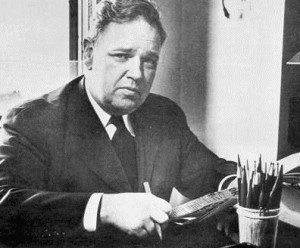I spent a good part of my day yesterday culling through analyses of the election in preparation for my talk to a local Republican club last night. But I did more than just gather information; I prayed as I gathered, seeking to know how the Lord wants me, and all Christians in particular, to respond to the results. In today’s post, I’m going to share what I told that group. Tomorrow, I want to address the perspective Christians should have on what has transpired.
Election Results
Obama won nearly every swing state, which was a shock to most prognosticators, myself included. The popular vote was 50-48 in Obama’s favor, but he received about ten million fewer votes than in 2008. Romney underperformed also, receiving nearly three million fewer than McCain did. The great opportunity for Republicans to take the Senate dissipated; not only did they not retake it, but they lost two seats, despite the fact the Democrats had more seats to defend—nearly 2/3 of the races. The House stayed in Republican hands, but even there they lost a few seats. The lone voice for some sanity in Washington, DC, is slightly weakened.
What Does This Election Say about the Electorate?
We are a severely divided people. The split is almost even, but that masks the downward trend away from a Christian culture. Consider that Obama won without any agenda for a second term, that experiencing the worst economic time since the Great Depression made no difference, and neither did the massive national debt nor Obamacare, which will now surely be fully implemented. Astonishingly, some polls indicated that voters trusted Obama more with handling the economy than Romney, and that 53% still blamed Bush more for the current state of the economy.
One exit poll (I don’t recall where this was asked) sought to measure the impact of Hurricane Sandy on voters. In that poll, 42% said Obama’s response to the hurricane—interrupting his campaign to “take care” of the emergency—was an important factor in their vote for him; 15% said it was the most important factor. What exactly did Obama do besides get a wonderful photo op out of it? Yet these voters “felt” good about his response, so much so that it either solidified their vote or caused them to change it. All too often in politics, perception rules even when it doesn’t comport with reality. These people were voting primarily on emotion, not principle.
 In Ohio, the majority approved the government auto bailout. Of that majority, 75% voted for Obama, believing the false narrative the Obama campaign fostered that Romney was a coldhearted vulture capitalist who would have let GM fail completely. These voters were not thinking about the good of the nation as a whole; they were focused entirely on their own well-being. In this case selfishness won over principle.
In Ohio, the majority approved the government auto bailout. Of that majority, 75% voted for Obama, believing the false narrative the Obama campaign fostered that Romney was a coldhearted vulture capitalist who would have let GM fail completely. These voters were not thinking about the good of the nation as a whole; they were focused entirely on their own well-being. In this case selfishness won over principle.
Obama promised more goodies that Romney did. Rush Limbaugh nailed it, I believe, when he commented that Romney’s recipe was the traditional route to success called hard work, whereas Obama took the government-will-take-care-of-you path:
In a country of children where the option is Santa Claus or work, what wins? And say what you want, but Romney did offer a vision of traditional America. In his way, he put forth a great vision of traditional America, and it was rejected. It was rejected in favor of a guy who thinks that those who are working aren’t doing enough to help those who aren’t. And that resonated.
When Romney proclaimed that Obama was the candidate of “free stuff,” the voters took him at his word and grabbed for the “stuff.”
We witnessed a populace more concerned about free contraception than the taking of innocent lives through abortion. We saw three states vote in favor of same-sex marriage [if Washington eventually did so—I don’t have the final word on that] and the election of the first openly homosexual senator, Tammy Baldwin in Wisconsin.
The maxim that so many conservatives want to believe, that we are a center-right nation politically, has been proven shaky, if not false. I already questioned that; now we have more evidence that we are more center-left and that the real definition of “moderate” in American politics is “liberal.”
What Does This Election Say about the Republican Party?
 Republican turnout was not as high as anticipated. We can legitimately debate the specifics of how the Romney campaign was run—not forcefully combating the false images; expecting the bad economy to carry him to victory by itself; avoiding the ripe topic of Obama’s Libyan foolishness; the adoption of the play-it-safe mentality that worked so well for President Thomas Dewey in 1948 [?]—yet those are tactical questions only. The real issue is what the party is willing to stand for. What is its soul?
Republican turnout was not as high as anticipated. We can legitimately debate the specifics of how the Romney campaign was run—not forcefully combating the false images; expecting the bad economy to carry him to victory by itself; avoiding the ripe topic of Obama’s Libyan foolishness; the adoption of the play-it-safe mentality that worked so well for President Thomas Dewey in 1948 [?]—yet those are tactical questions only. The real issue is what the party is willing to stand for. What is its soul?
American conservatism—which is not the same as the Republican party, but ought to be—is a three-legged stool: economic liberty, moral values based on the Biblical worldview, and commitment to a strong national defense. Romney enunciated the first, hinted at the third, and only vaguely accepted the second. He always has been weaker on abortion and homosexuality, and much of the mainstream Republican establishment agrees with him on those issues. Some Republicans tolerate those evangelicals in their midst because they form a key foundation for political victories, but they don’t really like them.
So what will the party become in the post-2012 age? Will it swing toward a tepid middle-of-the-road philosophy or offer a stark contrast to the statist and antichristian stance of the Democrats? As Grover Cleveland noted after losing his reelection bid in 1888 when he rejected the advice of his advisors to change his political views on one issue: “What is the use of being elected or reelected unless you stand for something?”
To those who say a Biblically based, conservative message will not work, I say it depends on the messenger. There is a way to communicate truth and its application to policy that can win over people. They key is finding the principled politicians who can convey that message effectively. We had some principled politicians this time around—Akin in Missouri, Mourdock in Indiana—who lost due to their verbal stumbles. What the Republican party needs are articulate leaders who can guide those who are open to hearing the truth about how government is supposed to work.
What Does This Election Tell Us about the Future of America?
 As I watched the tragedy unfold Tuesday evening, and I came to the realization that Barack Obama will be president for four more years, a profound sadness enveloped me. Some of you know I have a book manuscript that compares the optimism of Ronald Reagan with the pessimism of Whittaker Chambers. I want to be a Reagan optimist, but I admit, by nature, I’m more of a Chambers pessimist. I always need a reason for optimism because I know the human condition too well: sin/selfishness dominates this world. In a letter to a friend, Chambers wrote this in the early 1950s:
As I watched the tragedy unfold Tuesday evening, and I came to the realization that Barack Obama will be president for four more years, a profound sadness enveloped me. Some of you know I have a book manuscript that compares the optimism of Ronald Reagan with the pessimism of Whittaker Chambers. I want to be a Reagan optimist, but I admit, by nature, I’m more of a Chambers pessimist. I always need a reason for optimism because I know the human condition too well: sin/selfishness dominates this world. In a letter to a friend, Chambers wrote this in the early 1950s:
On one side are the voiceless masses with their own subdivisions and fractures. On the other side is the enlightened, articulate elite which, to one degree or other, has rejected the religious roots of the civilization—the roots without which it is no longer Western civilization, but a new order of beliefs, attitudes and mandates. The enemy—he is ourselves. That is why it is idle to talk about preventing the wreck of Western civilization. It is already a wreck from within.
Is this true? How far gone are we? While I believe Reagan had good reasons for his optimism in the 1980s, can we say the same today, or has the cultural transformation gone beyond the point of no return? Is there really such a point or is it possible to turn this around? The culture has changed; that much is undeniable. We are undergoing what one commentator calls a “tsunami of secularism.”
We need to rebuild our foundations as a society, but it must begin with a return to the Biblical worldview, which will then lead us back to principles—the general truths that must undergird a society. If that happens, we will then see a renewed commitment to constitutionalism and the rule of law. Only by taking these steps will we be able to restore what has been lost.
I agree with Reagan when he said, “I do not believe in a fate that will fall on us no matter what we do. I do believe in a fate that will fall on us if we do nothing.”
What are Christians to do? How are we to respond to this election? I’ll try to deal with that tomorrow.
